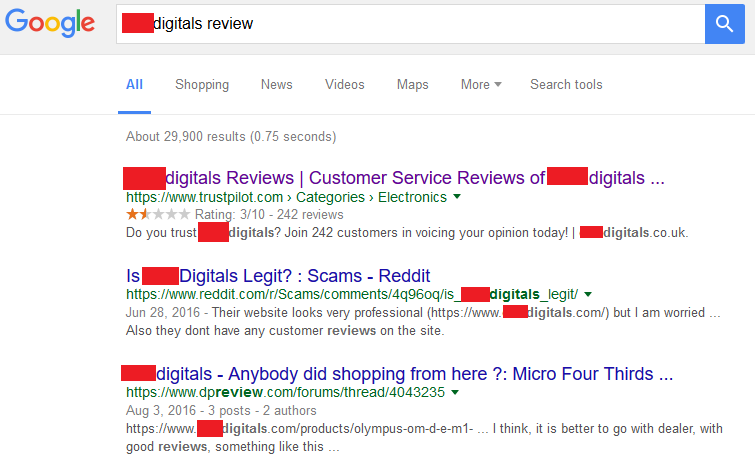Holidays are at the doorstep and you'll be planning to do some or all you gift shopping from online stores. While many online shops are legit, it's important to learn from others' mistakes during the Black Friday and Cyber Monday periods; many of those who purchased from online stores that looked so legit but cheaper, ended up giving away their money to websites that turned out being either fraudulent or non-existing.
Those fraudulent websites are expected to increase in 2017. As trusted that some sites can be (such as Amazon, EBay, etc..), many cybercrooks stores are simply there to exploit your trust that legit stores gained over the years.
A very close friend of mine had a bad experience with an online store, he has been shopping online for 5 years but he learned it the hard way;
after 8 weeks of no delivery with hopless attempts to contact the support, he failed miserably to get a refund. 5 minutes of research before placing his order could have saved him money and time.
Investigate the store before placing your order
Due diligence
Especially if it's the 1st time you try a shop, 5 minutes of research can save you lots of money and time following up on that money. Google the company name followed by the word 'review' and check the store reputation. If Google shows you negative reviews then you should hold your horses, if Google shows you good reviews then you need to research further. (Below is a screenshot from Google).

Check online reviews, Google is not always enough
Search Engine optimization can be manipulated, some companies have planned their Social Media presence and Search Engine to prelude their scams by publishing false reviews, either to trick customers or to overwrite previous negative reviews. TrustPilot is one of those websites where customers place their reviews for some online services. (Below are some screenshots from TrustPilot posted by angry customers, there are many of them)
Check if they have a responsive customer support
Some companies might support you by email and chat without providing a phone number. A store without a phone number should trigger the scam alarm. It's a sign that those companies do not care keeping in touch with customer.
(Screenshot from OneDigitals.com, no phone number)
Many companies only accept debit cards
Be careful when using direct banking transactions to pay for goods, use an online payment option such as PayPal and Credit Cards which can be retrieved in case of fraud.
Debit cards payments are hard to revoke comparing to credit card. A shop that only accepts debit cards or weird untraceable money transfer should raise scam alarms.
What to do when you don't receive your order and fail to refund?
- Try to follow up with those companies for the last time
- Report to the closest cybercrime bureau
- Report to your bank
- Reach out for others so they don't fall in the same trap
That was about fake online shops, as for information about secured online shopping, IBM Security got you some good tips.




Leave a comment!